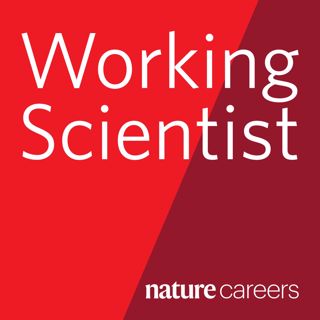Om episode
In the fourth episiode of this six-part Working Scientist series about science communication, Pakinam Amer examines how festivals, film, comedy clubs and virtual space camps can be ideal vehicles to explain your research to young people.In 2018, propulsion development engineer Diana Alsindy launched Arabian Stargazer, a bilingual Instagram page that promotes rocket science and STEM careers to young people in Arabic-speaking countries.Alsindy, who moved to the US from Iraq aged 14, tells Amer she developed the platform after realising that online resources in Arabic for young people seeking information about space science were thin on the ground.“I'm passionate about science and I want to make other people passionate about it," she says. "My vision and my dream is to create space clubs, but virtually, engaging young people in techical conversations, using games, riddles, and Q&As with astronauts.”Typically Alsindy runs one-hour presentations in both Arabic and English. “I’ve done it for five-year-olds and high school students. All I need is a latop and a screen, a Skype call or Google Hangout. If we want to open space science to everyone don’t open it for only English speaking populations.”Helen Pilcher transitioned from UK stem cell researcher to writing and stand-up comedy, and is now science advisor at The Beano a children’s comic. A gig at one of the first Cheltenham Science Festivals with scientist friend Timandra Harkness marked a turning point.“We called ourselves The Comedy Research Project and the aim was to prove scientifically that science can be funny.”Alexis Gambis, assistant professor of biology at New York University Abu Dhabi, United Arab Emirates, founded labocine.com, a science film platform and magazine. “Whenever I talk about my films I always say in some ways I consider it to be research. I don’t consider it to be science communication. I’m really interested in how to bring microscopy into film for a general audience.”Urmila Chadayammuri, a pre-doctoral fellow and a PhD student Yale University in New Haven, Connecticut, worked with three colleagues she met at a two-day hackathon in 2019 to launch Cosmos VR, an app that offers a simulation including colliding galaxies, black holes and exploding stars. She tells Amer how the science communication project came about. Hosted on Acast. See acast.com/privacy for more information.
Nyeste episoder

How studying octopus nurseries can shape the future of our oceans

How we slashed our lab’s carbon footprint

Meet the retired scientists who collaborate with younger colleagues

A dumpster full of mercury and other things to avoid: lab closures made simple

Pension planning and psychosocial support: how institutions can help academics at the late career stage

“Who am I if not a scientist?” How to find identity and purpose in retirement

Choose your own adventure: navigating retirement after an academic career

The last few miles: how to prepare for the late-career stage in science

Counting the cost of fashion’s carbon footprint

